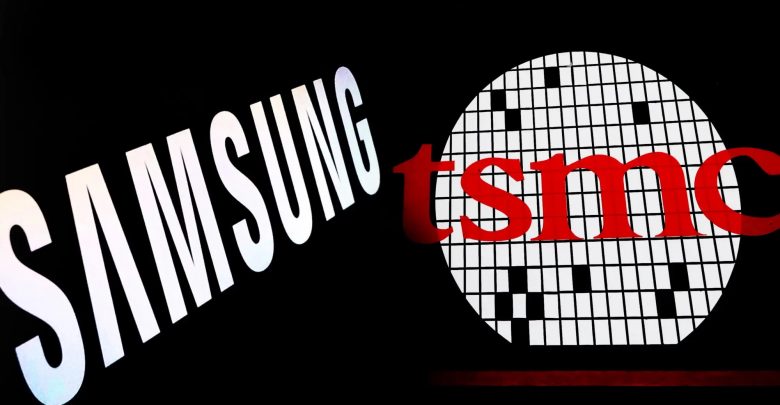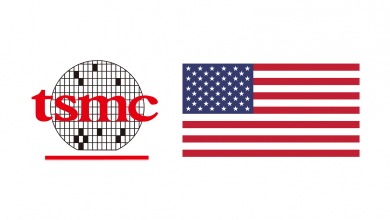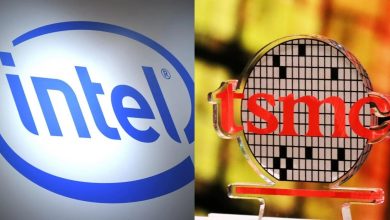
With Samsung’s 5nm extreme ultraviolet lithography (also known as EUV or EUVL) chip production currently underway, the Korean giant will want to level up with TSMC using an advanced manufacturing process. The company is reported to skip the 4nm node altogether and directly jump from 5nm to 3nm. However, to bring its plan to fruition, some serious investment is needed. It turns out Samsung may already be eyeing that; in the form of a $10 billion chip development facility in Austin, Texas.
South Korean technology multinational, Samsung has decided to spend over $10 billion to construct an advanced new logic chip making plant in Austin, Texas, as Bloomberg reports. The plant will be capable of making processors as advanced as 3nm, and would be Samsung’s third plant where the chips have “worldwide use” and it makes use of EUV tech in its chip production. If the plans are given the go ahead, then the construction of the plant could begin this year, with major equipment being installed in 2022, and operations beginning in early 2023.
Setting up an advanced US-based Samsung fabrication plant in Texas could provide Samsung a great opportunity in getting new contracts from US customers especially amidst ongoing trade tensions between the US and China with the previous US administration. This move would be a major godsend for Samsung as it would bring the fight closer to TSMC, which manufactures chips for AMD, Nvidia, Qualcomm, Mediatek, including the chips for Apple’s latest iPhones and Macs. TSMC is also investing in a US-based plant, worth around $12 billion located in Arizona that’s expected to start making chips by 2024. In a statement to Bloomberg, Samsung said it had yet to make a decision about its plans for a new US facility.
About 2 years back, Reuters had reported that Samsung plans to invest $116 billion over the next decade into non-memory chips. Chips produced in Austin, Texas are currently thought to be limited to the less advanced 14 nanometer process nodes, according to Nikkei. But according to Bloomberg, Samsung hopes to begin offering chips based on 3nm processor node technology in 2022. While the South Korean giant’s strength has traditionally been in memory chips, Bloomberg stated that the market for logic devices like smartphones and computer processors is more profitable.
“If Samsung really wants to realize its goal to become the top chipmaker by 2030, it needs massive investment in the U.S. to catch up with TSMC,” said Greg Roh, senior vice president at HMC Securities. “TSMC is likely to keep making progress in process nodes to 3nm at its Arizona plant and Samsung may do the same. One challenging task is to secure EUV equipment now, when Hynix and Micron are also seeking to purchase the machines.”
Samsung’s plans for the plant are reported to still be in their preliminary stages, but some initial steps have already been taken. Nikkei reported in December that Samsung had already acquired a 440,000-square-meter plot in Austin, where it has had a manufacturing presence since the 90s. Just last year, city officials tried reviewing the company’s request to rezone the land for industrial use. Closing the deal could be dependent on Samsung negotiating controversial tax benefits and subsidies from the Biden administration, although Bloomberg reports it may also go ahead without them.
Samsung already manufactures chips for Qualcomm and Nvidia, and is reportedly close to signing a new deal with Intel. The Korea Times reports that Samsung could produce 15,000 graphics chips for Intel’s Xe GPUs starting in the second half of this year at Samsung’s Austin plant. Incoming Intel CEO Pat Gelsinger has said outsourcing may be a part of the company’s future, saying that although company plans to continue producing the majority of its chips internally, it may outsource the manufacturing of “certain technologies and products” in 2023, the WSJ reports.
With this investment, Bloomberg notes that Samsung is capitalizing on a growing trend for companies like Microsoft, Amazon, and Google to design their own chips and outsource manufacturing to companies like Samsung and TSMC. As well as making chips for others Samsung also produces its own Exynos-branded processors for use in its smartphones.
Samsung still faces a big challenge competing with TSMC, which plans to invest $28 billion this year alone. In contrast, Samsung’s semiconductor business invested $26 billion last year in capital expenditure, and Bloomberg notes this was mainly in support of its memory business.
The investment could be hindered by the availability of Samsung heir and de facto leader Jay Y. Lee, who was recently ordered back to prison for two years and six months on bribery charges. Hopefully they work something out by then.


